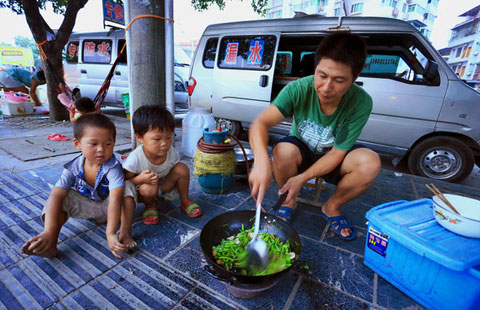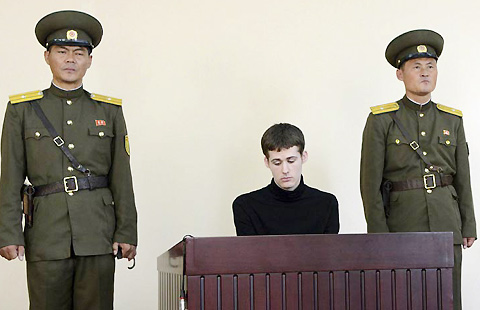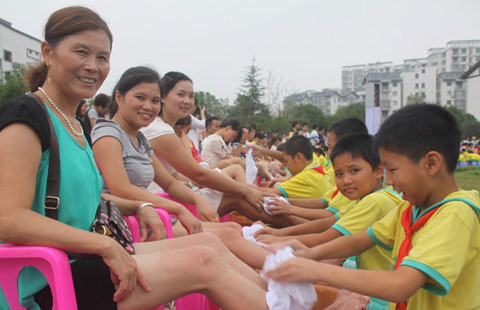Stage star who put opera into new galaxy of success
Updated: 2014-09-16 13:01
By Huang Zhiling and Ma Luyao in Chengdu(China Daily)
|
|||||||||||
It is 1:30 pm. Chen Qiaoru is holding her lunch in a bowl in the rehearsal hall of the Sichuan Opera Theater in Chengdu .
Gulping down rice, she keeps a close eye on an 18-year-old actress rehearsing on stage.
“Your movement is too flexible. It has to be stiffer,” Chen demanded, putting aside her bowl and heading to the stage to correct her movement.
It is normal for the 47-year-old to have a working lunch as she is often preoccupied with rehearsals or coaching young performer.
The two-time winner of the Plum Blossom Prize, China’s top drama performance award, has been devoted to the Sichuan Opera for 35 years.
Chen’s parents were Sichuan Opera performers and at the tender age of 12 she started learning the intricacies of opera in the Sichuan Opera troupe in her mountainous home county of Xuyong, in Sichuan, which borders Guizhou province.
Thanks to her talent and hard work Chen became an early star and performed with other members of the troupe in different parts of Sichuan. Longing for a bigger stage, Chen left the county for Chengdu, capital of Sichuan, when she was 16.
Learning from Zhang Guangru, a leading Sichuan Opera actress in Chengdu over a period of four years, Chen performed in the “Good Sichuan People,” in Beijing in 1987.
The play, adapted from German playwright Bertolt Brecht’s work first staged in 1943, concerns the difficult quest to find people who will do good deeds. Chen played a prostitute, whose heart was pure, and her performance won rave reviews, Zhang said.
In 1992, Chen won her first Plum Blossom Prize with her portrayal of the white snake in the Sichuan Opera of that name that tells the legendary love story between a snake-turned woman and a young scholar.
Sichuan Opera fell out of favor in the 1990s as TV sets became more commonplace.
Some performers left and changed jobs and friends tried to persuade asked Chen to do likewise but she did not want the art form, which had lasted more than 300 years, to disappear.
Her determination was rewarded when the opera was granted cultural heritage status.
As the economy developed more people became aware of the arts, said Wei Minglun, a playwright in Chengdu.
“The rise in people’s incomes was important. More people now appreciate traditional art forms like the Sichuan Opera,” says Wei Minglun, a playwright in Chengdu.
To promote Sichuan Opera, Chen who is executive vice-president of the theater, started giving performances in institutions of higher learning in 2004.
Chen and colleagues performed the “Tale of the Red Plum,” a play about the tragic love between a woman forced to be the concubine of a key politician of the Southern Song Dynasty (1127-1279) and a young scholar, at Peking University in 2008.
“As the play was written some 400 years ago, she feared students might not understand it. But all the 1,000-plus seats were occupied. After the performance, students avidly discussed the play with the performers,” said Sun Puxie, a co-performer.
Chen and her colleagues perform at universities and colleges from March to June each year to make sure younger people have an understanding of the art form.
Hot Topics
The newly announced overhaul of China's college entrance exam and university enrollment system requires support from all walks of life, said a commentary in the Communist Party of China's flagship newspaper.
Editor's Picks

|

|

|

|

|

|







